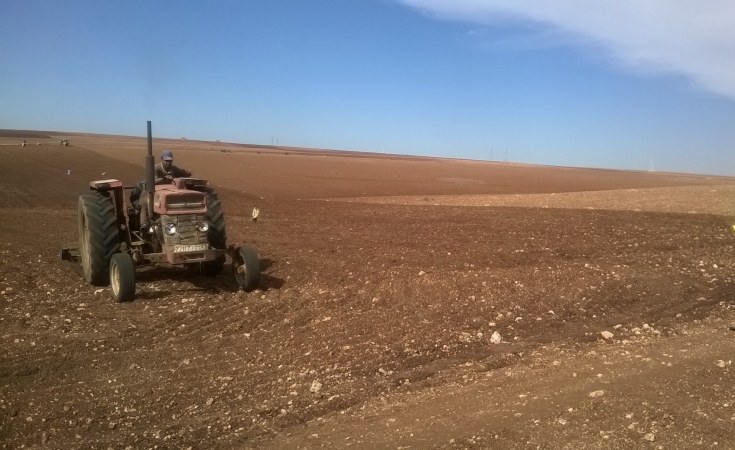For Nigeria, the price of fertiliser tripled as a result of the war. Nigeria imports Muriate of Potash (MOP), one of the major raw materials used for blending the farm inputs from Russia and has been unable to do so as a result of the cocktail of sanctions imposed on Russia.
Russia's Foreign Minister Sergey Lavrov on Saturday said 34,000 metric tons of Russian Fertilizer meant for Nigeria was stuck at EU ports.
According to Russian News Agency, TASS, Mr Lavrov speaking to reporters at the 78th United Nations General Assembly (UNGA) in New York, said 260,000 metric tons of Russian fertilizers have been stranded in EU ports since 2022.
"But we are ready to give these fertilizers to African countries for free. It took six months to deliver the first batch of 20,000 tons to Malawi, and another three months to take another 30,000 tons to Kenya," TASS quoted him as saying, adding that "we also have 34,000 tons for Nigeria, but have so far been unable to send it."
The 34,000 metric tons is the equivalent of 34 million kilogrammes or 680,000 units of 50kg bags of fertilizer.
Earlier, speaking in Burundi in May, Mr Lavrov announced that Russia would send the fertiliser to Nigeria after it had sent to Kenya and Malawi.
Russia's invasion of Ukraine since February 2022 has increased global food prices as well as the prices of commodities such as fertilizer. Russia and Ukraine together supply about 30 per cent of global wheat exports and around a fifth of the world's maize.
For Nigeria, the price of fertiliser tripled as a result of the war. Nigeria imports Muriate of Potash (MOP), one of the major raw materials used for blending the farm inputs, from Russia and has been unable to do so as a result of sanctions imposed on Russia.
The US, Canada, EU and other allies of Ukraine imposed several economic sanctions on Russia after it invaded Ukraine. It also encouraged other countries to isolate Russia.
Millions of Nigerian farmers, many of them poor, rely on such fertilisers to grow their crops.
In his Saturday interview, Mr Lavrov also asked the European Commission to buy up Ukrainian grain rejected by the European Union members and redirect it to African countries in need.
"Since the European Commission is wasting tens of billions of dollars on Ukraine, it can buy the grain that Ukraine wants to sell and EU countries don't want [to buy] for reasons of competitiveness, and send it to Africa," TASS quoted him as saying.
According to Mr Lavrov, Ukraine's grain is being supplied to European countries who are in turn rejecting them in the interest of their own farmers.
Poland for instance has banned Ukraine's grain in its domestic market. This decision has led to a deterioration in the relationship between Ukraine and one of its closest supporters -- Poland.
Ukraine's President Vlodymyr Zelenskyy speaking at UNGA, even though he did not expressly mention Poland and other EU countries who have banned Ukraine grain, said Poland and others were setting the stage for Russia.
"Alarmingly, some in Europe play out solidarity in a political theater -- turning grain into a thriller. They may seem to play their own roles. In fact, they're helping set the stage for a Moscow actor," the Associated Press quoted him as saying during the UN General Assembly.
Responding to Mr Zelenskyy, Poland's deputy foreign minister, Pawel Jablonski, said as far as Poland was concerned, Mr Zelenskyy's claims are untrue and unjustified.
Hungary, Slovakia and Croatia also banned some Ukrainian grain and other agricultural goods.


